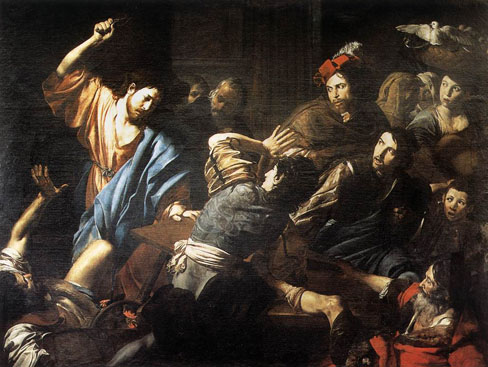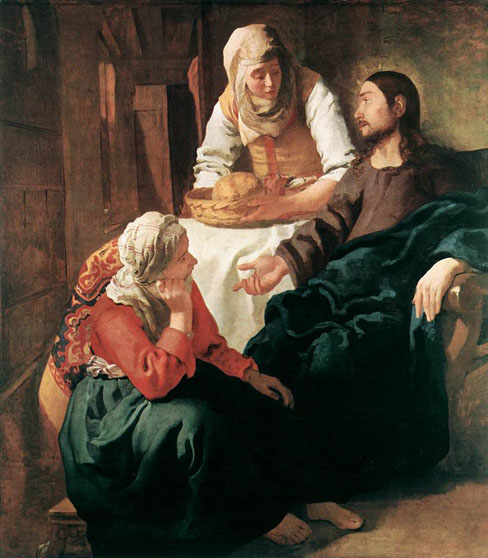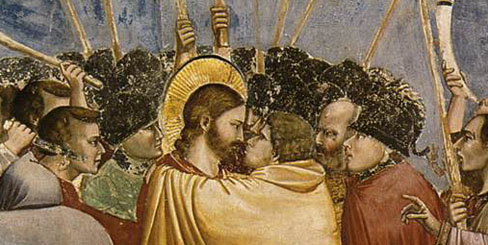Figuring out new ways to remind ordinary people of the nature and logic of power in this world has — rightly so — become a topic of greatly heightened concern on the left. Events continue to show us the disastrous results of losing so many of our natural allies to the spreading quicksand of religious fundamentalism.
I don’t pretend to have a comprehensive or even wide way to turn the tide in this dire struggle, but I do want to suggest that we stop ceding important ground to fundamentalist propaganda when we have the easiest possible refutation at hand.
Take the case of the hoary but still invariably repeated notion that, in The New Testament, Jesus said that “The poor will always be with us.”
Googling that entire sentence in quotation marks yields 15,000 hits. And who has not heard this familiar line? Even Sister Helen Prejean, author of the magnificent Dead Man Walking, repeats it without comment.
In the conventional telling, the claim is that, somewhere in the Bible, Jesus himself uttered the famous accommodationist line, the universal interpretation of which has been: “Don’t worry yourself about fighting poverty. It will always exist and, hence, can’t ever be ended. Save your own butt, instead, by focusing on yourself, not the social world.”
This standard little homily ought to raise some suspicion for its rather rank contradiction of Jesus’s other sayings about the poor being blessed, the meek inheriting the Earth, everybody selling their extraneous possessions, and rich men having virtually no chance of entering Heaven. How could the fiery friend of beggars, lepers, prostitutes, and pariahs and enemy of bankers, Roman colonizers, and local compradors make such a hugely conservative statement?

Valentin de Boulogne, “Christ Driving the Money Changers out of the Temple,” c. 1618
The answer, of course, is that he didn’t! If you bother to actually do what the fundamentalists claim to be their core activity — read and respect the sacred text — you find that the entire “poor will always be with us” schtick is an egregious case of later interpreters stripping words from their surrounding and controlling story.

Jan Vermeer, “Christ in the House of Martha and Mary,” c. 1654-55
The actual biblical story in question is this: Jesus is about to be crucified, and he knows it. He is a having farewell dinner with his friends, including Lazarus and Mary Magdalen. As part of the sorrowful occasion, Mary decides to violate Jesus’s request that his followers sell their luxury goods and give the money to the poor. The form of Mary’s violation is her decision to rub “costly perfumed oil” on Jesus’ feet.
In what ought to be a famous object lesson in the anti-fundamentalist bent of Jesus himself, none other than Judas Iscariot objects to this transgression of doctrinal adherence. “Why was this oil not sold for three hundred days’ wages and given to the poor?,” Judas jeers at Mary Magdalen.
The famous poverty line comes in reply to this rat-fink and aspiring fundamentalist: Jesus said, “Leave her alone. Let her keep this for the day of my burial. You always have the poor with you, but you do not always have me.”

Giotto di Bondone, “Kiss of Judas,” Detail, 1304-06
Translation? “Yo, Judas, you dick: Lay off Mary, and stuff a sock in your fundamentalist displays. I’m getting whacked tomorrow, so we can let Mary break one rule tonight. You can spend the rest of your life helping the poor. I’m gone after tomorrow.”
Nothing whatsoever in this story has anything to do with a trans-historical claim about the causes and solutions to poverty. “You will always have the poor with you” is a simple personal rebuke to Judas about near-term events, not a general direction to social resignation and disengagement. To read it as the latter rather than the former is as far-fetched as it is unfundamental.
Now, I’m not in favor of converting to religion. What I’m saying, though, is that we ought to at least consider defending and elaborating upon the radical dimensions of the world’s faiths. Karl Marx certainly recognized the importance of doing this, and it is no accident that the two most successful social movements of the 20th century were steered by Mohandas Gandhi and Martin Luther King, Jr, both of whom knew how to reach out to more than one choir.
The simple fact is that Jesus never blessed the unending reign of class inequality. In fact, to my agnostic eye, the moral necessity of challenging it is absolutely and undeniably one of the main themes of his official biography. And, of course, Jesus was correct: Poverty is not timeless and inevitable. On the contrary, it is only 6,000 years old, a direct and obvious product of the still uncured disease of class domination. For the vast majority of modern homo sapiens’ 100,000+ years of existence, poverty did not exist. If we have any hope of providing future humans a chance at another 100,000 years, we must liberate the truth from the flimsy paper bag in which our moguls and mouthpieces try to hide it. We should waste no asset in our struggle to pop that bag, from within or without.

El Greco, “The Spoliation,” 1577-79
 Michael Dawson works for pay as a paralegal and sociology teacher in Portland, Oregon. He is presently writing a book, Automobiles Ueber Alles: Corporate Capitalism and Transportation in America, forthcoming from Monthly Review Press.
Michael Dawson works for pay as a paralegal and sociology teacher in Portland, Oregon. He is presently writing a book, Automobiles Ueber Alles: Corporate Capitalism and Transportation in America, forthcoming from Monthly Review Press.
